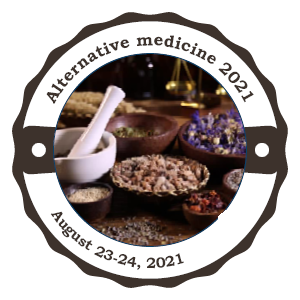
Sara H. Tawfik
Researcher in Pharos University in Alexandria,Egypt
Title: Modulation of the mTOR/AMPK pathway by aspirin and/or chlorogenic acid in experimental model of myocardial infarction in rats
Biography
Biography: Sara H. Tawfik
Abstract
Recent studies have suggested effective prevention of myocardial infarction (MI) with many herbal medicines as add on therapy to the standard aspirin (Asp) therapy. Hence, the present study was designed to investigate the cardioprotective effects of Asp, chlorogenic acid (CGA) or their combination on isoproterenol (ISO) induced MI in rats. Markers of apoptosis, autophagy and oxidative stress, along with histopathological evaluation were assessed in myocardial and liver tissue sections. Serum levels of aspartate transaminase, creatine kinase, lactate dehydrogenase and cardiac troponin I were examined. The effects on the AMP-activated protein kinase (AMPK) - mammalian target of rapamycin (mTOR) pathways as potential molecular targets were also explored. Results of this study clearly revealed that CGA significantly lessened the injurious effects of ISO on the myocardium, the mixture of Asp (30mg/kg/day) and CGA (40mg/kg/day) was significantly more effective in ameliorating both the myocardial tissue pathological alterations and the serum diagnostic cardiac markers of MI as compared to either the CGA or Asp monotherapy, in addition of showing liver protective effects. Incorporating wholly the multiple effects of CGA including antioxidant, anti-inflammatory, anti-apoptosis, antifibrotic and autophagy enhancement may explain the marked cardioprotection observed in the present study. Consequently, CGA could be nominated as a promising prophylactic therapy for patients who are at risk of developing MI and to provide cardioprotection against the progression of existent diagnosed infarction.

